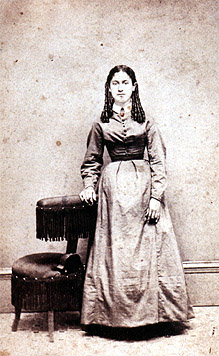On This Day in History, Sarah Jane Early Was Born
Share
Explore Our Galleries
Breaking News!
Today's news and culture by Black and other reporters in the Black and mainstream media.
Ways to Support ABHM?
On this date in 1825, Sarah Jane Early was born.

She was a Black teacher, abolitionist, and feminist.
Sarah Jane Woodson Early was born in Chillicothe, OH. Much of her feminist and Black community involvement took place through the African Methodist Church (AME) and a number of Black educational institutions.
In 1856, she earned an L.B. degree from Oberlin College, becoming one of the first Black women to receive a college degree. From 1859 to 1860, while working at Wilberforce University, Early became the first Black woman college faculty member.
Read more here.
Learn about Harriet Tubman, another famed abolitionist.











Comments Are Welcome
Note: We moderate submissions in order to create a space for meaningful dialogue, a space where museum visitors – adults and youth –– can exchange informed, thoughtful, and relevant comments that add value to our exhibits.
Racial slurs, personal attacks, obscenity, profanity, and SHOUTING do not meet the above standard. Such comments are posted in the exhibit Hateful Speech. Commercial promotions, impersonations, and incoherent comments likewise fail to meet our goals, so will not be posted. Submissions longer than 120 words will be shortened.
See our full Comments Policy here.